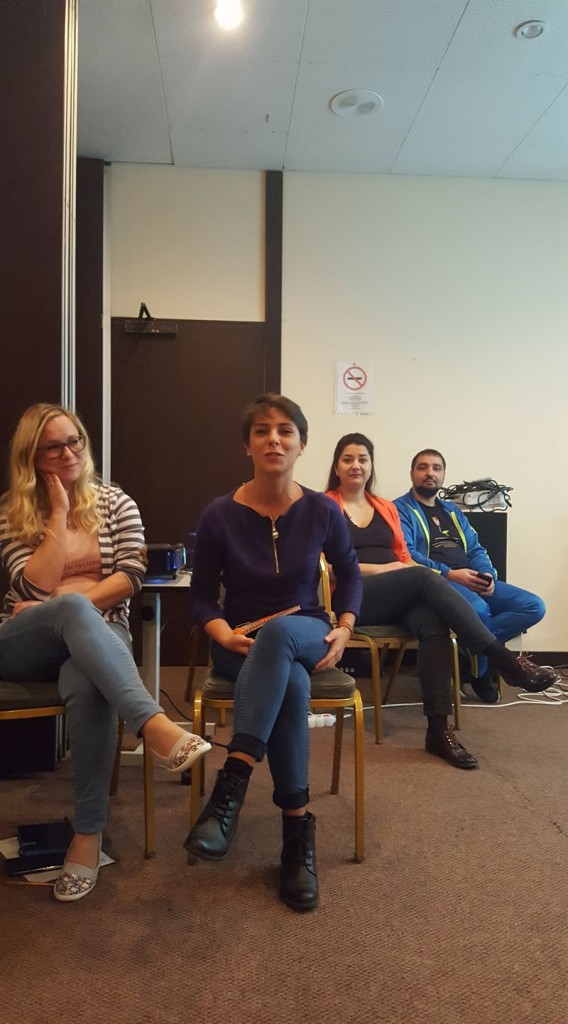 Summary
Summary
The aims of the Phiren Amenca networking meeting were to address key questions on European level regarding youth activism, active citizenship and voluntary service with a strong focus on the inclusion of Roma youth. During the networking meeting the partner organizations could share their practices, and could reflect about current needs and challenges in the cooperation for Roma youth inclusion.
During the meeting participants gained information about the new European Solidarity Corps Program of the European Commission and discussed their questions with a representative of a Hungarian National Youth Council from Hungary, learned more about new ways of selection, recruitment and preparation of volunteers from a volunteer of the Young Adults in Global Mission (YAGM) program, participants experienced conflict situations among Roma and non-Roma volunteers and their organizations and solutions how to handle them (based on a Forum Theatre method) and developed their coach and supervisor skills and shared their expectations towards the network as well.
During the working groups participants discussed about the development of a platform of (former) volunteers, and to support self-organized initiatives of volunteers during and after their service; and the network had a chance to reflect about the obstacles of involving Roma young people in mobility programs and about Roma youth empowerment and active citizenship strategies in the context of Roma and youth policies in Europe, and identify the key challenges that need to be addressed by the network on European level.
The networking meeting gave the opportunity for old and new members of the network to come together, to evaluate the results of the last year of the network and to develop further steps and cooperation possibilities under the core mission, to challenge stereotypes, racism and antigypsyism. This meeting also gave the possibility to reflect on new forms and ways how to involve more and more young people with fewer opportunities to European mobility programs.
The project was funded by the Erasmus+ program of the European Commission.

